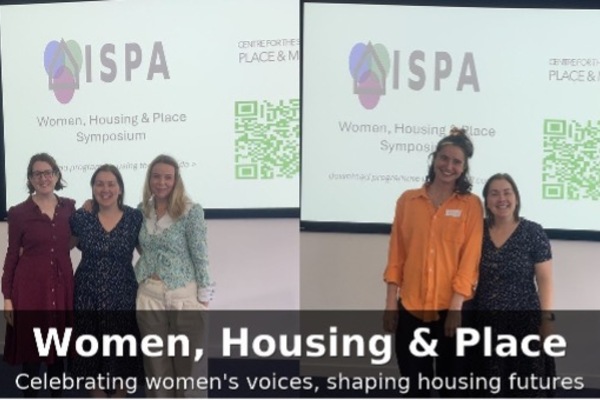We all know that housing is a critical social determinant of health and is particularly important for economically marginalised groups. In Australia, 14.2% of families are one-parent families and 83% are single mother headed (ABS, 2019). They are one of the most economically and socially disadvantaged groups in Australian society. Providing secure housing, a fundamental human need, to single mothers and their children is in the interest of the wider society.
My colleague and I screened and analysed 421 wall posts and 2,133 comments on a Facebook group where more than 1,000 single mother members search for shared housing. Now I am going to unfold these single mothers’ stories about their housing experiences.
Struggling for a ‘home’: Single mothers’ housing stories:
Unaffordable housing: “Killing us” “an enormous barrier” “extremely expensive” “such a big issue” “too expensive for what you get”
These are the phrases used by our single mothers to express their struggles with rent and bills in the private rental market, particularly in metropolitan cities like Melbourne and Sydney. Rental affordability is tied to location. Some mothers had to compromise their desirable locations to somewhere where rent was cheaper. One mother was unable to live within her own hometown because of the high rent and another mother lived in an area for 1.5 years but never felt home as she did not voluntarily choose to live there. Such a lack of belonging in the housing location contributes to single mother families’ sense of rental insecurity (Hulse & Saugeres, 2008).
Struggles in the private rental market: “Desperate” “unlucky” “tired” “stressed”
The highly competitive and expensive private rental market is not friendly for single mother families, putting them one-step away from being literally homeless. After being turned down 25 times, one mother got a rental house with only 12 days left to vacate her previous house and another mother and her 5-year-old child were approved for a house just hours away from homelessness and she had lost count of how many properties she applied for.
High mobility: “tired” and “unsafe”
Some single mother families had to move very frequently because of eviction, rental increases or using emergency housing services. One mother and her 1-year-old and 7-year-old children had moved between different shared accommodations 4 times within 7 months. Some were forced to search for cheaper accommodation because the rent increased excessively. One 33-week pregnant woman with mental health issues had to move bounce from motel to motel. They felt “tired” and “unsafe” about these frequent moves.
Homelessness: one in eight
Literal homelessness was explicitly mentioned 27 times in the posts and comments. One mother and her 11-year-old son lived in a campervan without power and bathroom for 1 year. An Australian national survey found that one in eight (12.6% of 892) single mother families lived in temporary accommodation (i.e., shelter or refuge), with family or friends, short term private rental (i.e., no lease or lease for less than 6 months), and insecure accommodation such as in a boarding house (Sebastian & Ziv, 2019).
Survive and thrive: Single mother families’ resilience and strengths
Despite facing so many difficulties and disadvantages, single mothers developed resilience and coping abilities to remain housed and make a home for themselves and their children. Their practical strategies include sharing housing with another single mother family and using foodbanks to save food costs for rental. Education is another strategy to bolster their strengths in facing daily struggles. At the time of posting, 18 single mothers were in education and 4 were considering further study for a better future. Pets were important for many single mothers and their children, viewed as “my daughter’s sister” and “my furry children”, contributing to their wellbeing. Strength of hearts, or positive psychosocial characteristics, such as gratitude, hope, optimism, self-efficacy, helped them go through the difficult housing insecure time. We found numerous stories of single mothers helping single mothers. They provided and received instrumental, information, emotional and appraisal support from each other, showing the collective strength of this social group.
Single-mother families encounter housing insecurity across a continuum from unaffordable
housing to homelessness. It is important to acknowledge single mothers’ resilience and assist them to mobilize their own assets. However, we also have to admit the limitations of individual agency: structural problems (e.g., unaffordable housing, inadequate social housing, discrimination, financial stress, unemployment) undercut self-determination no matter how deeply held. Mountain-moving efforts and collective solutions across social, economic, political and cultural domains to tackle structural problems are central and urgent. Safeguarding single mothers and their children and providing secure housing, a fundamental human need, is in the interest of the wider society.
References
Australian Bureau of Statistics [ABS]. (2019) Housing occupancy and costs 2017–2018. https://www.abs.gov.au/statistics/people/housing/housing-occupancy-and-costs/latest-release
Hulse, K. & Saugeres, L. (2008) Housing insecurity and precarious living: An Australian exploration. https://www.ahuri.edu.au/research/final-reports/124
Sebastian, A. & Ziv, I. (2019) One in eight: Australian single mothers’ lives revealed. https://www.csmc.org.au/wp-content/uploads/2019/12/One-in-Eight-Families_CSMC-National-Survey-Dec-2019.pdf
Ma, M., & Sebastian, A. (2021). Housing insecurity experiences and coping strategies of single‐mother families in Australia: An Internet‐mediated research. Analyses of Social Issues and Public Policy, 21(1), 998-1019. https://doi.org/10.1111/asap.12264
About the author
Mengxing is a PhD researcher at the University of St Andrews. Her research has a broad focus on the health and social well-being of families, including topics like social determinants of health, social wellbeing (e.g. social support, loneliness and social isolation), intergenerational relationships, and productive and active ageing.
Mengxing received a bursary to attend the Housing Studies Association Annual Conference 2022. As part of the bursary, recipients are expected to contribute to the HSA blog, and this blog post is based on the paper presented at the HSA conference.Find out more about the HSA conference bursaries.






